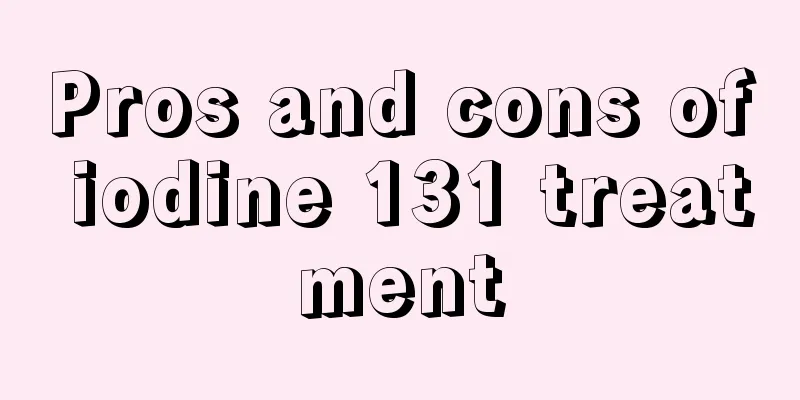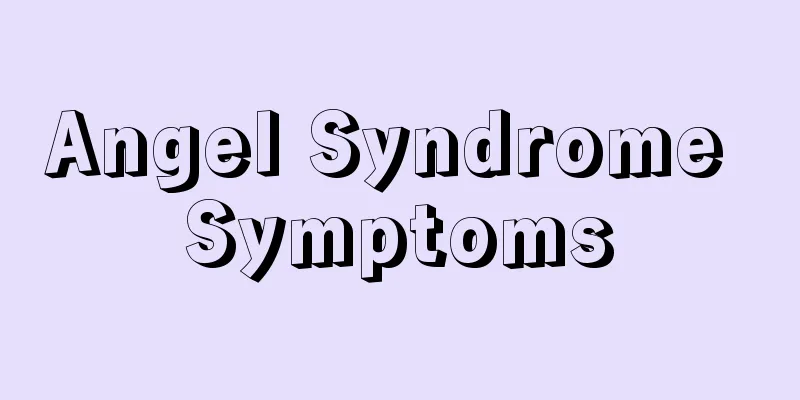Pros and cons of iodine 131 treatment

|
Iodine 131 is a new treatment method specifically for hyperthyroidism. Perhaps many people are not very familiar with this treatment method, and some people have never even heard of it. Therefore, many patients with hyperthyroidism cannot accept this treatment. In fact, this treatment method is a better way to treat hyperthyroidism. It can effectively treat hyperthyroidism and alleviate the condition. Let’s take a look at the pros and cons of this treatment method. Advantages of iodine-131 in treating hyperthyroidism 1. The treatment has precise efficacy, high cure rate and low recurrence rate. Patients generally experience gradual therapeutic effects 2 to 3 weeks after taking the medication, with symptoms and signs beginning to ease and then gradually disappearing, achieving recovery. Some patients who are not cured after one course of treatment can be treated again. 2. Iodine-131 is an oral medication and is a non-invasive treatment. 3. It is simple. The necessary examinations and tests before treatment usually only take 2 days. Patients do not need to be hospitalized and can leave after taking the medicine. After that, you only need to go to the nuclear medicine clinic for a follow-up examination in the 3rd and 6th month after treatment. 4. The cost of treatment is relatively low. Disadvantages of Iodine-131 for Hyperthyroidism Treatment Iodine-131 is a radioactive nuclide with a certain degree of radioactivity, which can radiate certain amounts of radiation to people around you. Therefore, after taking iodine-131, you should be careful to avoid prolonged, close contact with others, especially infants, young children and pregnant women. Some patients may develop hypothyroidism after iodine-131 treatment and require thyroid hormone replacement therapy. 5. Iodine-131 treatment of hyperthyroidism has no effect on growth, development, fertility, or offspring Iodine-131 has been used to treat hyperthyroidism for more than half a century. According to a large number of population statistics, no effects on fertility, growth and development, or offspring have been found, and it does not increase the risk of cancer. In addition, hyperthyroidism itself can lead to infertility or infertility. After treatment with iodine 131-, thyroid function returns to normal and fertility can be restored. |
<<: How to eat every day to gain weight
Recommend
What's going on with itchy eyes and swollen eyelids?
When we find that our eyes are itchy or swollen, ...
What are the late symptoms of laryngeal cancer
Laryngeal cancer is a malignant tumor originating...
How to lose weight with belly fat
How to reduce the fat in the stomach is considere...
What are the effects and functions of sunflower liver protection tablets
The value of sunflower liver protection tablets i...
What is the diagnosis method for fibroids
What is the diagnosis method for fibroids? If fib...
Correct smoking technique
Cigarettes are something that can paralyze people...
How to diagnose gastric cancer? Pay attention to these points
Gastric cancer is a very serious disease and is v...
What shoes are suitable for thick legs?
Men and women have different aesthetic values. In...
Can uterine cancer be cured?
Uterine cancer is a series of malignant tumors th...
What are the causes of villous tubular adenomas of the colon?
Colon villous tubular adenoma is a raised lesion ...
Why do I have a lot of phlegm but no cough?
Many people will find that they have a lot of phl...
What to do if laundry detergent hurts your hands
We usually use laundry detergent to wash clothes....
Will frequent sexual intercourse result in the birth of a daughter?
In life, many lovers or spouses have frequent sex...
Can I take a hot bath if I have a fever?
Many people are not very clear about whether you ...
Can hawthorn and brown sugar water help lose weight?
Hawthorn and brown sugar water is very easy to ma...









